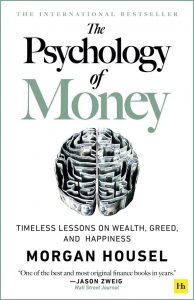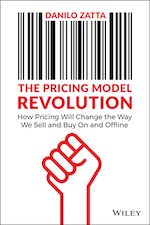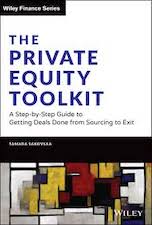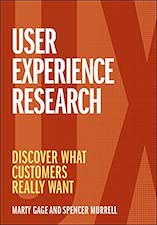The Psychology of Money by Morgan Housel
Your worldview is based on your personal experiences. This is so narrow and limited window that it’s even scary what comes out of it. Many of the things are out of your control such as when and where you were born, and partly your uprising. Yet, these define together with your learnings and education how you think the world works. All this is reflected in your relationship to money, investing, risk-taking and time perspectives. Housel gives concise examples and insights in an easy-to-read format but simplicity does not mean the lessons are simple or shallow: it is a very sobering read and it’s nice to get reminded of the fundamentals once in a while.
The Pricing model revolution by Danilo Zatta
Pricing is an ever-important part of your business and revenue models. It’s part of your competitive advantage, branding, differentiation and profit margin. Zatta reminds us of the basic concepts such as cost plus, competitor and value pricing but also more novel approaches that he calls the pricing model revolution. For startups, many of the concepts are familiar such as subscription, pay-per-use, freemium, dynamic, AI-based and participative pricing. If you are looking for new ideas and inspiration for your business the book can provide insights and support in your strategy work.
The Private Equity Toolkit by Tamara Sakovska
The private equity world has been rather opaque with its methods, ways of working and processes. Sakovska sheds light on the inner workings of a PE professional from deal sourcing, case analysis, and valuation to deal structuring and execution as well as exiting the deals. The approach in the book is very pragmatic and practical. You can get ideas, compare your methods and gain knowledge from Sakavoska’s experiences and know-how.
User Experience Research by MartyCage and Spencer Murrell
The subtitle of the book cuts to the chase: discover what customers want. It focuses on the first step of the Design Thinking Process: empathising. There’s no point going further if you’re not understanding what drives customers and what they truly value. The rest of the steps are: define, ideate, prototype and test. The book is based on six key principles (relevant, aspirational, holistic, rigorous, actionable and visual) and it also makes it easy to read and be used as a reference guide while you’re doing your user experience research. It is visually pleasing and approachable UX is a testimonial to the message it’s conveying.
Quantum physics
For the last few years, I have been intensively studying physics again as a layman and here’re a few of the books that I have found to be inspirational:
– David Deutsch: The Fabric of Reality and The Beginning of Infinity
– Chiara Marletto: The Science of Can and Can’t
– Douglas Hofstadter: I am a strange loop and Gödel, Escher, Bach: an Eternal Golden Braid
– Max Tegmark: Our Mathematical Universe: My Quest for the Ultimate Nature of Reality
– Michael Lockwood: The Labyrinth of Time
– Carlo Rovelli: Reality is not what it seems, Seven Brief Lessons on Physics and Helgoland
– Peter Atkins: Four laws that drive the universe




